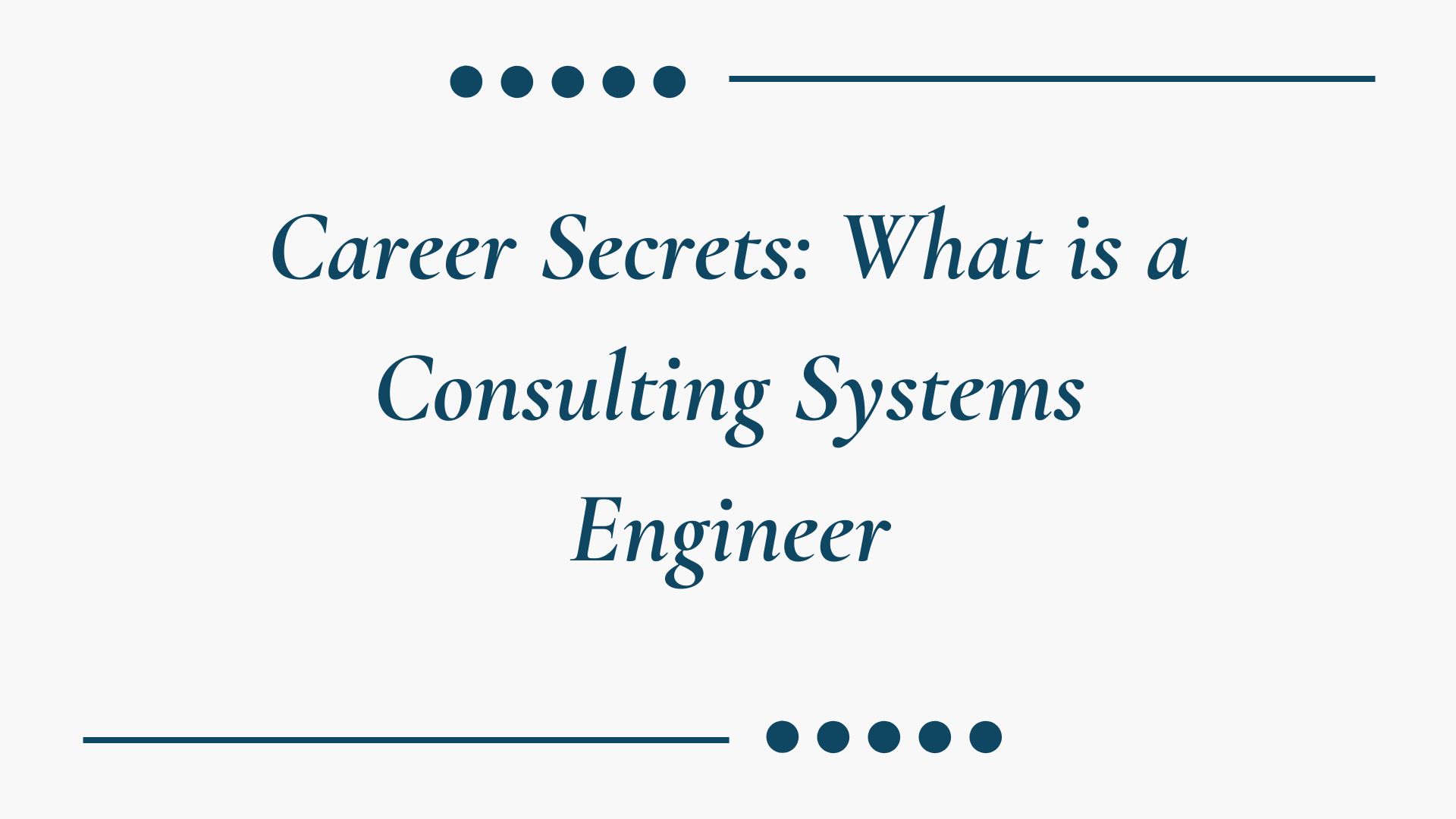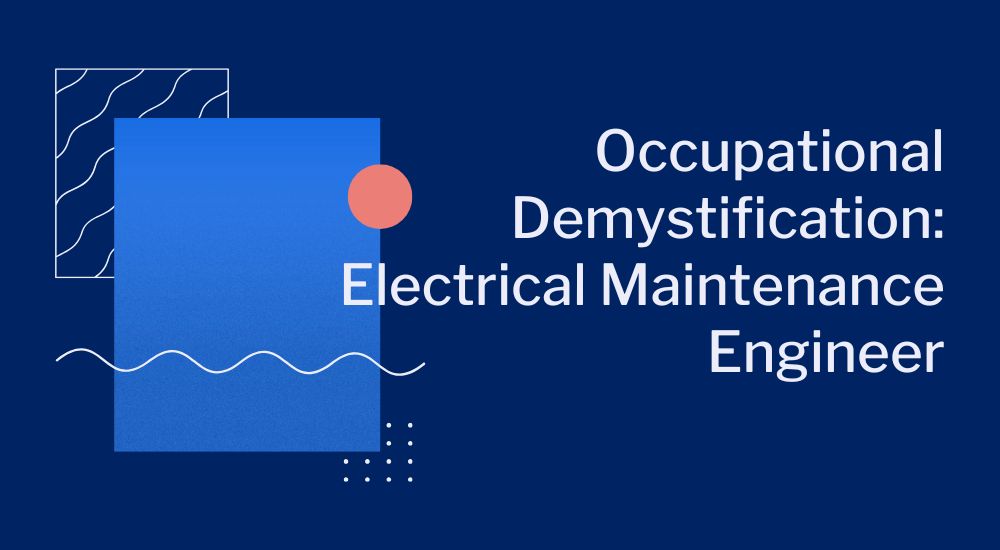TRUSTED BY THE SMARTEST TEAMS IN THE WORLD FOR CERTIFIED CANDIDATES
SPOTO Blogs
Useful learning materials to become certified IT personnel
-
- 279
- SPOTO 2
- 2025-07-15 11:50
-
- 387
- SPOTO 2
- 2025-07-15 10:15
-
- 367
- SPOTO 2
- 2025-07-14 11:52
-
- 335
- SPOTO
- 2025-07-14 10:42
-
- 483
- SPOTO 2
- 2025-07-14 10:23
-
- 359
- SPOTO
- 2025-07-11 13:40
-
- 410
- SPOTO 2
- 2025-07-11 13:25
-
- 471
- SPOTO
- 2025-07-11 13:14
-
- 391
- SPOTO 2
- 2025-07-11 11:01
TRUSTED BY THE SMARTEST TEAMS IN THE WORLD FOR CERTIFIED CANDIDATES
SPOTO Blogs
Useful learning materials to become certified IT personnel
-
- 279
- SPOTO 2
- 2025-07-15 11:50
Table of Contents1. What is Certified Business Analysis Professional certification?2. Benefits of having Certified Business Analysis Professional certification3. Details of the Certified Business Analysis Professional certification4. What Are the Qualifications to get a Certified Business Analysis Professional certification?5. Similar certifications of Certified Business Analysis Professional certification This article will introduce you to what a Certified Business Analysis Professional certification is, the details information of Certified Business Analysis Professional certification and the necessary conditions to get a Certified Business Analysis Professional certification. By reading this article, you will gain an in-depth understanding of the Certified Business Analysis Professional certification. 1. What is Certified Business Analysis Professional certification? Certified Business Analysis Professional (CBAP) is a globally recognized advanced business analysis certification launched by the International Institute of Business Analysis (IIBA) to recognize practitioners with rich business analysis experience and professional capabilities. It is one of the most authoritative certifications in the field of business analysis and is suitable for professionals who are responsible for demand planning, process optimization, strategic analysis, etc. in complex business environments. The core goal of CBAP certification is to establish professional standards in the field of business analysis, standardize the skills and knowledge system of practitioners, prove that the holder has the ability to apply business analysis tools, techniques and frameworks in complex projects and business scenarios, and enhance the professional recognition of business analysis practitioners, helping them to assume higher levels of analysis responsibilities in the enterprise. 2. Benefits of having Certified Business Analysis Professional certification As a globally recognized advanced certification, Certified Business Analysis Professional certification is a "hard currency" in job seekers' resumes and a secret to success for employed workers on their career advancement path. It has a significant advantage in multinational companies, large projects or high-end job recruitment. CBAP holders can join the IIBA global community, meet industry experts and peers, and obtain more career development resources. Through preparation for the exam, practitioners can systematically master the methodology in the BABOK Guide and improve analysis efficiency and decision-making quality in complex business scenarios. Certified Business Analysis Professional certification is not only proof of professional ability, but also an important stepping stone for career advancement. Certified Business Analysis Professional certification is mainly aimed at senior practitioners with many years of business analysis experience, such as business analysts with many years of business analysis related work experience, team leaders, strategic analysts, and most professionals who want to be promoted from junior or mid-level analysts to senior positions. 3. Details of the Certified Business Analysis Professional certification The Certified Business Analysis Professional certification exam is a computer-based exam that consists of 120 multiple-choice questions and lasts 3.5 hours. The passing score set by IIBA must be met. The specific score is not public and is evaluated based on the correctness rate. The exam content is strictly based on the BABOK Guide and covers tools, techniques, and practical applications in 6 major knowledge areas. Candidates must complete the exam appointment within 1 year after the application is approved. If you are an IIBA member, the exam fee is US$395, and if you are not, it is US$595. Candidates can choose online or offline exams through Pearson VUE test centers. 4. What Are the Qualifications to get a Certified Business Analysis Professional certification? (1) Submit an application Fill out an online application on the IIBA official website, upload work experience certificates, PDU records, letters of recommendation and other materials, and the application fee is US$550. (2) Application review IIBA will review the application materials (about 4-6 weeks). If the materials are incomplete or do not meet the requirements, they will be required to be supplemented and revised. (3) Pass the exam After the application is passed, the exam appointment must be completed within 1 year. The exam fee is US$395 (IIBA members) or US$595 (non-members). You can choose to take the exam online or offline through the Pearson VUE test center. (4) Maintain certification The CBAP certification is valid for 3 years. Within 3 years, you need to accumulate 60 professional development hours and pay the maintenance fee to renew it. What makes the Certified Business Analysis Professional certification special is that IIBA has strict experience and education requirements for CBAP applications. It requires job seekers to have at least 7,500 hours of professional experience in business analysis, which means a full-time worker needs to spend at least 4.5 years. Among them, the experience must cover at least 4 of the 6 knowledge areas defined in IIBA's "BABOK Guide", and applicants must complete at least 35 hours of business analysis-related professional development courses within 4 years before applying, but this is not the most complicated part. In addition to learning and work experience, applicants also need to provide 2 letters of recommendation: 1 from a professional referee such as your supervisor or client to prove your business analysis work experience, and 1 from an IIBA member or CBAP/CCBA certificate holder, but if the applicant is an IIBA member, 1 letter can be waived. You must become an IIBA member when applying for CBAP, and non-members cannot apply. 5. Similar certifications of Certified Business Analysis Professional certification IIBA's CCBA (Certified Capability in Business Analysis) PMI-PBA (PMI Professional in Business Analysis) ECBA (Entry Certificate in Business Analysis) IREB's CPRE (Certified Professional for Requirements Engineering) Salesforce Certified Business Analyst -
- 387
- SPOTO 2
- 2025-07-15 10:15
Table of Contents1. What is Professional Scrum with User Experience™ certification?2. Benefits of having a Professional Scrum with User Experience™ certification3. Details of the Professional Scrum with User Experience™ certification4. What Are the Qualifications to get a Professional Scrum with User Experience™ certification?5. How much does it cost to pass the Professional Scrum with User Experience™?6. Similar certifications of Professional Scrum with User Experience™ certification This article will introduce you to what a Professional Scrum with User Experience™ (PSUI) certification is, the detailed information of the Professional Scrum with User Experience™ certification and the necessary conditions to get a Professional Scrum with User Experience™ certification. By reading this article, you will gain an in-depth understanding of the Professional Scrum with User Experience™ certification. 1. What is Professional Scrum with User Experience™ certification? Professional Scrum with User Experience™ (PSUI) certification is a professional certification launched by Scrum.org. It aims to help Scrum teams and related practitioners master how to effectively combine user experience (UX) practices with the Scrum framework to deliver products that better meet user needs and have greater value. The core goal of PSU certification is to solve the challenges of integrating UX and agile development that Scrum teams may encounter in actual work, including how to incorporate UX activities such as user research and testing into the fast-iteration Scrum process; how to ensure the consistency between product functionality and user experience; and how to better integrate UX practitioners into the Scrum team and participate in demand analysis, iteration planning and other links. 2. Benefits of having a Professional Scrum with User Experience™ certification The PSUI professional certificate can prove the job seeker's professional ability to apply UX practices in an agile environment, which has a positive effect on career development, job hunting and promotion. Having this certificate can also improve team collaboration efficiency, help Scrum teams clarify the role of UX activities in iterations, reduce process conflicts, and make design and development more smoothly connected. Having this certificate can also improve team collaboration efficiency, help Scrum teams clarify the role of UX activities in iterations, reduce process conflicts, and make design and development more smoothly connected. In addition, it can also effectively enhance product competitiveness to ensure that products can be delivered quickly while improving user satisfaction and retention through user experience design. This certification is suitable for all roles that participate in Scrum teamwork and focus on user experience. Whether you are a Scrum team member, a UX designer, a user researcher, a product designer, a product owner, or a product manager who wants to improve the user experience of the product, having this certificate can support your further development in your career path. 3. Details of the Professional Scrum with User Experience™ certification The Professional Scrum with User Experience™ (PSUI) exam consists of 60 questions and takes 60 minutes. The questions include single-choice questions, multiple-choice questions, and true-or-false questions. The full score is 60 points, and you need to score 51 points (85% or above) to pass the exam. The exam content mainly focuses on understanding and applying the Scrum framework, people and team development, agile product management and supplementary practices. 4. What Are the Qualifications to get a Professional Scrum with User Experience™ certification? (1) Attend official training First, you must complete the PSUI course certified by Scrum.org. This process usually takes 1-2 days. The course content covers the integration strategy of UX and Scrum, practical tools, case analysis, etc. (2) Pass the certification exam Second, after the training, you need to take an online exam. The exam content includes 50 multiple-choice questions and the exam time is 60 minutes. The correct rate must reach 85% or above to pass. The exam focuses on the understanding of the combination of UX and Scrum, the problem-solving ability in actual scenarios, etc. (3) Maintain certification Currently, PSUI certification has no validity limit and is valid for life after passing. However, it is recommended that practitioners continue to participate in Scrum.org's community activities or advanced courses to keep their knowledge updated. 5. How much does it cost to pass the Professional Scrum with User Experience™? The cost of passing the Professional Scrum with User Experience™ (PSUI) certification exam is $200 per exam. This certification has no validity limit and no annual fee is required. You can choose your own way to pass this certification exam, but it is undeniable that it is much more efficient to directly sign up for the SPOTO course than to collect and read materials on your own. SPOTO not only has experts with rich professional practice experience to teach, but also provides course materials and first-hand information to help candidates save the time and cost spent on the certification to the greatest extent. 6. Similar certifications of Professional Scrum with User Experience™ certification Professional Scrum Master (PSM) Professional Scrum with Kanban (PSK) Certified Scrum Master (CSM) Certified Scrum Product Owner (CSPO) Scaled Professional Scrum (SPS) -
- 367
- SPOTO 2
- 2025-07-14 11:52
Table of Contents1. What is a Release Engineer?2. How much does a Release Engineer Make?3. Responsibilities of a Release Engineer4. What Are the Qualifications to Become a Release Engineer?5. Similar Occupations of Release Engineer This article will introduce you to what a Release Engineer is, the career information of a Release Engineer and the necessary conditions to become a Release Engineer. By reading this article, you will gain an in-depth understanding of the profession of Release Engineer. 1. What is a Release Engineer? Release Engineers are professionals responsible for the management of the entire process of software products from development to deployment. They are key roles in the software development and operation and maintenance teams. Their core responsibilities are to ensure that software versions can be efficiently, stably and reliably delivered to the production environment. At the same time, they coordinate the collaboration of multiple teams, such as development, testing, and operation and maintenance, and optimize the release process to improve delivery quality and efficiency. They focus on automating, managing and optimizing the software release process. They connect the development, testing and operation and maintenance links, and are the core executors to ensure continuous software delivery. 2. How much does a Release Engineer Make? According to Zippia, Release Engineers in first-tier cities can earn 20K-50K per month, and an annual salary of 24W-60W yuan. Those in second-tier cities can earn about 8K-15K per month, and an annual salary of 10W-18W yuan. The salary of Release Engineers who are new to the industry is relatively low, but as their years of work increase, the salary of mid- to senior-level Release Engineers who have mastered proficient technology will increase significantly. The salary of Release Engineers will also vary to varying degrees depending on the type and size of the company. For example, a large company recruited a Release Engineer for a foreign client with a monthly salary of 16K-20K, requiring him to have oral English communication skills and relevant technical experience. In contrast, the salary level of Release Engineers in small and medium-sized enterprises may be relatively low, but it also varies depending on the specific business and financial situation. The salary of Release Engineers in some small and medium-sized enterprises may be around 8K-15K per month. In addition, the salary of a Release Engineer is also largely affected by the industry-recognized certificates held by job seekers. The more recognized certificates a job seeker has, the more likely he or she is to get a higher salary. 3. Responsibilities of a Release Engineer The core responsibilities of Release Engineer include designing and optimizing the release process, designing a standardized software release process, including version control, building, testing, and deployment, ensuring that each step is traceable and repeatable, reducing manual operations, introducing automated tools to shorten the release cycle, and reducing human errors. Coordinate the development team to resolve code conflicts, maintain the standardization of the code base, avoid release risks caused by version confusion, build and maintain the automated build system, and use scripts or tools to automatically compile, package, and build the code. It is also their responsibility to generate deployable software packages. Release Engineer also serves as a "bridge" between the development, testing, and operation teams to synchronize release progress, coordinate and solve cross-team problems, clarify the responsibilities of each team in the release, and ensure that the release nodes are clear and controllable. 4. What Are the Qualifications to Become a Release Engineer? (1) Obtain a Bachelor's Degree Usually a bachelor's degree in a related field is required, preferably a degree in software management, artificial intelligence and computer-related majors. These majors can help students better understand the principles of computer hardware and software, understand the principles of programming and computer operation, and lay a solid foundation for future work. (2) Core Technical Skills To become a Release Engineer, you need to master a variety of technical tools and concepts to manage the end-to-end release process. You need to be proficient in using tools such as Git, SVN, or Mercurial to track code changes, manage branches, and resolve conflicts. You also need to be able to write scripts to automate repetitive tasks and customize workflows and be familiar with containerization and orchestration tools to deploy applications in a scalable environment. It will also be your responsibility to understand the basics of testing frameworks in order to coordinate with the relevant teams and ensure that the releases meet the quality standards before deployment. (3) Earn Industry Certifications CCNA is generally regarded as the starting point of the Release Engineer career and is an important tool to prove job seekers' basic abilities in the field of IT technology; CCIE helps to master network-related knowledge and is suitable for people who want to achieve higher achievements and further develop in the IT industry; and Cisco certification is of great benefit to those who plan to work in network technology-related jobs. If you want to master core technical certifications such as CCNA and CCNP, then SPOTO Academy is your ideal choice. They have a team of lecturers composed of senior industry experts, bringing cutting-edge technical insights and practical experience. Whether you are new to the IT field or seeking a career breakthrough, SPOTO's course system can help you achieve your goals. 5. Similar Occupations of Release Engineer Build Engineer DevOps Engineer Deployment Engineer Configuration Manager Release Manager -
- 335
- SPOTO
- 2025-07-14 10:42
Table of Contents1. What is a Consulting Systems Engineer ?2. What does a Consulting Systems Engineer do ?3. How much does a Consulting Systems Engineer Make ?4. Job Outlook of Consulting Systems Engineer5. Similar Occupations of Consulting Systems Engineer6. What Are the Qualifications to Become a Consulting Systems Engineer ? 1. What is a Consulting Systems Engineer ? Consulting systems engineers are systems professionals who help companies design medium- to large-scale technology solutions and focus on large-scale IT solutions. 2. What does a Consulting Systems Engineer do ? The job responsibilities of consulting system engineers mainly involve product design and delivery, including managing projects, solving technical problems, and developing planning scopes for managers and executives. They need to monitor the implementation of projects to assess whether there are potential risks and whether there is a need to improve the productivity and efficiency of the system on the original basis. 3. How much does a Consulting Systems Engineer Make ? According to data from ZipRecruiter on July 6, 2025, the average annual salary for consulting system engineers in the United States is $100,250. That's about $48.20 per hour. That's equivalent to $1,927 per week or $8,354 per month. The highest annual salary can be as high as $125,500 and as low as $69,500, but most consulting system engineers currently make between $81,500 and $120,000 per year, with the highest earners in the United States making up to $123,000 per year. The average salary range for consulting system engineers varies widely (up to $38,500), which means there may be many opportunities for advancement and pay increases depending on skill level, location, and years of experience. 4. Job Outlook of Consulting Systems Engineer As industries become increasingly reliant on complex technological solutions, and as a result, there is a need for experts who can design, implement and manage these systems. The job market will continue to see an increasing demand for consulting systems engineers. 5. Similar Occupations of Consulting Systems Engineer Systems Analyst Solutions Architect Systems Architect System Engineer Network Consultant IT Consultant Electrical Engineer Mechanical Engineer 6. What Are the Qualifications to Become a Consulting Systems Engineer ? (1) Obtain a Bachelor's Degree Bachelor's degree in a technical field such as Computer Science, IT or Computer Engineering (2) Develop professional skills This position often requires job seekers to have relevant IT system expertise and several years of relevant experience working in a dynamic team environment. In addition, interpersonal skills and multi-tasking skills are also essential for this position. (3) Earn Industry Certifications Obtaining a certification that is highly recognized by the industry can prove your professional ability and ability to perform the position, and can also enhance your competitiveness in the workplace. Therefore, we recommend that you obtain the CCIE Enterprise Wireless certification. This certification can validate your mastery of planing, designing, implementing, operating, and optimizing complex enterprise wireless networks. Drive decisions for these solutions by ear -
- 483
- SPOTO 2
- 2025-07-14 10:23
Table of Contents1. What is an IT Support Engineer?2. How much does an IT Support Engineer Make?3. Responsibilities of an IT Support Engineer4. What Are the Qualifications to Become an IT Support Engineer?5. Similar Occupations of IT Support Engineer This article will introduce you to what an IT Support Engineer is, the career information of an IT Support Engineer and the necessary conditions to become an IT Support Engineer. By reading this article, you will gain an in-depth understanding of the profession of IT Support Engineer. 1. What is an IT Support Engineer? IT Support Engineers are professional technicians who are responsible for solving technical problems for internal employees or external customers, providing information technology-related technical support, troubleshooting, system maintenance and user support for enterprises or individual users. They are key roles in ensuring the smooth operation of IT systems, solving daily technical problems, and solving user technical problems. 2. How much does an IT Support Engineer Make? The salary of an IT Support Engineer is influenced by a variety of factors, with significant differences between regions, experience and backgrounds. Generally speaking, the salary of IT Support Engineers in first-tier cities is significantly higher than that in other regions: For example, in the United States, the salary in technology centers or metropolitan areas such as Silicon Valley and New York is significantly higher. Similarly, the salary of IT Support Engineers is also affected by the number of years of work experience. Junior IT Support Engineers usually deal with basic problems, and their salary is at the lower end of the range. According to data, the annual salary of junior IT Support Engineers in the United States is about $45K - $65K. Generally speaking, the salary of IT Support Engineers in first-tier cities is significantly higher than that in other regions: For example, in the United States, the salary in technology centers or metropolitan areas such as Silicon Valley and New York is significantly higher. Similarly, the salary of IT Support Engineers is also affected by the number of years of work experience. Junior IT Support Engineers usually deal with basic problems and their salary is at the lower end of the range. According to the data, the annual salary of junior IT Support Engineers in the United States is about $45K - $65K. In contrast, mid-level IT Support Engineers can solve complex problems independently and take on more responsibilities, so their salary has also increased significantly, from the original $45K - $65K to an average of $60K - $85K. In general, senior IT Support Engineers have a deep technical foundation and may be responsible for training, process improvement or experts in specific fields. Their salary can reach $80K - $110K, and they may begin to transition to higher-level roles such as system administrators and network engineers. Similarly, the salary of IT Support Engineers will also be affected by the industry and company size. Large enterprises or high-tech industries such as the Internet often offer better treatment than small and medium-sized traditional industries. 3. Responsibilities of an IT Support Engineer The core responsibilities of an IT Support Engineer are to diagnose and troubleshoot problems and to handle hardware issues such as computer failures, printer failures, and abnormal network device connections. They also need to solve and troubleshoot network problems and perform daily inspections and maintenance on systems and equipment to ensure their normal operation. Responsible for the installation and update of system patches, as well as the upgrade of virus protection software, providing technical advice to users, and answering questions about the use of IT equipment and software are also necessary. 4. What Are the Qualifications to Become an IT Support Engineer? (1) Obtain a Bachelor's Degree A bachelor's degree or above is generally required, preferably in computer-related majors such as computer science, information technology, or software engineering. These majors can provide a comprehensive understanding of computer hardware and software principles, laying a solid foundation for future work. (2) Core Technical Skills To become a Network Administrator, It is necessary to have a good understanding of common operating systems such as Windows, macOS, and Linux, and be proficient in their installation, configuration, and troubleshooting. At the same time, one should master the knowledge of computer hardware components, be able to diagnose and solve hardware-related problems. It is also necessary to master network technology and software and database skills. (3) Earn Industry Certifications Certification is an important proof of ability, especially for those without experience or job seekers in different industries. Although not all employers require certification, obtaining relevant certifications can enhance personal competitiveness. For example, CCNA is often seen as the starting point for IT careers and can prove basic IT technical capabilities. CCIE helps to master network-related knowledge, and Cisco certifications are of great benefit to those who plan to work in network technology-related jobs. SPOTO Academy focuses on certification training in key areas such as CCNA and CCNP. Its strong teaching team is composed of experienced industry experts who are well versed in the forefront of technology. Whether you are starting from scratch or a working professional who wants to improve your professional depth, SPOTO can match you with accurate and efficient course solutions. 5. Similar Occupations of IT Support Engineer Help Desk Technician Systems Administrator Network Engineer Desktop Support Technician Technical Support Specialist -
- 359
- SPOTO
- 2025-07-11 13:40
Table of Contents1. What is an Electrical Maintenance Engineer ?2. Responsibilities of an Electrical Maintenance Engineer3. How much does an Electrical Maintenance Engineer Make?4. What Are the Qualifications to Become an Electrical Maintenance Engineer ?5. Similar Occupations of Electrical Maintenance Engineer6. What professional certification can help you start your career as an Electrical Maintenance Engineer ? This article will introduce you to what an Electrical Maintenance Engineer is and the necessary conditions to become an Electrical Maintenance Engineer. By reading this article, you will gain an in-depth understanding of the profession of Electrical Maintenance Engineer . 1. What is an Electrical Maintenance Engineer ? Electrical maintenance engineers are professional technicians responsible for maintaining, troubleshooting and repairing the electrical systems and equipment of an organization or factory. 2. Responsibilities of an Electrical Maintenance Engineer As an electrical maintenance engineer, your main job revolves around the safe and stable operation of electrical equipment and systems. Specifically, you need to regularly check whether the electrical systems and equipment are damaged or worn and perform routine maintenance on the electrical systems and equipment in a timely manner. Secondly, you need to be able to accurately diagnose and troubleshoot electrical faults and set solutions to ensure that the organization's electrical system complies with electrical specifications and safety standards. Finally, cross-departmental cooperation is sometimes necessary and indispensable, and you need to be able to work with other maintenance team members to solve cross-functional problems. 3. How much does an Electrical Maintenance Engineer Make? According to ZipRecruiter's data on July 3, 2025, the average annual salary for electrical maintenance engineers in the United States is $88,310. That's about $42.46 per hour. That's equivalent to $1,698 per week or $7,359 per month. Annual salaries can be as high as $121,500 and as low as $47,500, but most electrical maintenance engineers currently make between $77,500 and $97,500, with the highest earners making $110,500 per year. The average salary range for an electrical maintenance engineer varies widely (up to $20,000), which means there may be many opportunities for advancement and increased pay based on skill level, location, and years of experience. 4. What Are the Qualifications to Become an Electrical Maintenance Engineer ? (1) Obtain a Bachelor's Degree Electrical Maintenance Engineer is a career that requires applicants to have a bachelor's degree in electrical engineering, electrical engineering or electrical engineering technology. (2) Develop Professional skills For Electrical Maintenance Engineers, installing and maintaining electrical systems, equipment and devices, and being able to use and maintain hand and power tools are basic entry skills. Higher-level skills require you to acquire relevant certifications and practical experience. (3) Earn Practical Experience For Electrical Maintenance Engineer, relevant work and internship experience can make you more competitive during the interview, so having practical experience in electrical related fields will be a plus point for your resume. 5. Similar Occupations of Electrical Maintenance Engineer Control Engineer Electrician Electronics Engineer Electrical Technician Maintenance Technician Electrical Project Manager Electrical Designer Electrical Engineer 6. What professional certification can help you start your career as an Electrical Maintenance Engineer ? Obtaining a certification that is highly recognized by the industry can prove your professional ability and ability to perform the position, and can also enhance your competitiveness in the workplace. Therefore, we recommend that you obtain the CCIE Enterprise Infrastructure certification. This certification can prove your skills with complex enterprise infrastructure solutions from designing and deploying to operating and optimizing. Take your place as a technical expert by achieving the Cisco Certified Internetwork Expert (CCIE) Enterprise Infrastructure certification. -
- 410
- SPOTO 2
- 2025-07-11 13:25
Table of Contents1. What is a Network Administrator?2. How much does a Network Administrator Make?3. Responsibilities of a Network Administrator4. What Are the Qualifications to Become a Network Administrator?5. Similar Occupations of Network Administrator This article will introduce you to what a Network Administrator is, the career information of a Network Administrator and the necessary conditions to become a Network Administrator. By reading this article, you will gain an in-depth understanding of the profession of Network Administrator. 1. What is a Network Administrator? A Network Administrator is an IT professional responsible for designing, implementing, maintaining, and troubleshooting an organization’s computer networks. These networks can range from small local area networks in a single office to large wide area networks connecting multiple locations, and may include on-premises infrastructure, cloud-based networks, or hybrid setups. The core goal of a Network Administrator is to ensure network availability, security, and performance to support business. 2. How much does a Network Administrator Make? Generally speaking, affected by geographical factors, first-tier cities generally have higher salaries, with 72.8% of network administrator positions earning between 6-10K per month and 7-12W per year. Second-tier cities are relatively low, with 88.2% of positions earning 3-8K per month and 4-10W per year. Network administrators in marginal villages may earn even less. The salary of fresh graduates is relatively low. According to Zippia data, 83.3% of network administrator positions earn 3K to 8K per month. With the accumulation of experience, the salary will gradually increase. Generally, the higher the education level, the higher the salary. The salary of a network administrator will also be affected by the scale of the enterprise and industry factors. Large enterprises or Internet companies have larger business scales and higher technical requirements, so their salaries are more considerable. Senior network administrators in large enterprises in first-tier cities can earn more than 10,000 yuan per month. In addition, in industries with higher requirements for network security, such as finance, government, and the Internet, network administrators will also have higher salaries. 3. Responsibilities of a Network Administrator Network administrators plan and set up network infrastructure, design and implement networks, and configure network protocols and services to enable communication between devices. Perform regular maintenance tasks, maintain and monitor networks, patch network devices, and optimize network performance. Network administrators also need to actively troubleshoot and solve problems, diagnose and resolve network problems encountered to minimize downtime and protect the network from unauthorized access, malware, or cyber attacks. In addition to this, network administrators are also required to assist employees with network-related issues, such as not being able to connect to the office Wi-Fi, email server issues. Maintain network documentation, including topology diagrams, device configurations, and security policies. Expand network capacity to support growing business needs. 4. What Are the Qualifications to Become a Network Administrator? (1) Obtain a Bachelor's Degree While not always strictly required, most employers prefer candidates with associate's or bachelor's degrees, typically in fields like computer science and information technology. Those with a bachelor's degree or above are more competitive in large companies or high-paying positions, especially when it comes to complex network architecture, where academic qualifications are often used as a screening threshold. Network Engineering, or Computer Networking. These programs cover foundational topics such as network protocols, operating systems and basic cybersecurity. For entry-level roles, a diploma in network administration or IT support may suffice, especially when paired with certifications. (2) Core Technical Skills To become a Network Administrator, you need a combination of educational background, technical skills, certifications, and practical experience to manage and troubleshoot networks effectively.Network administrators must master the basics of networking, be proficient in network protocols, understand network topology, and be familiar with network devices in order to effectively manage and troubleshoot network problems. They also need to understand common threats and mitigation measures, troubleshoot and monitor, and be able to use certain tools to diagnose network problems, solve connection problems, bandwidth bottlenecks or hardware failures, and have basic scripting skills and be familiar with scripting languages to automate repetitive tasks. (3) Earn Industry Certifications Certification is an important proof of ability, especially for those without experience or job seekers in different industries. For fresh graduates, companies will also prefer job seekers who have better previous experience and more industry-recognized certificates. Cisco CCNA focuses on Cisco equipment configuration, routing and switching, and is an entry-level certification with high industry recognition. Cisco CCNP is more suitable for large-scale network architecture management. It is a more advanced certificate certification suitable for professionals who want to further develop their career path. SPOTO Academy's courses cover key technologies such as CCNA, CCNP, SPOTO has gathered a large number of excellent teachers. Many experts have rich industry experience and master cutting-edge professional technologies. Whether you are a novice or a worker who wants to further study in the industry, you can find a course suitable for you in SPOTO. 5. Similar Occupations of Network Administrator Network Engineer System Administrator Cloud Engineer Network Security Engineer IT Support Engineer -
- 471
- SPOTO
- 2025-07-11 13:14
Table of Contents1. What is a Field Service Engineer?2. Responsibilities of a Field Service Engineer3. How much does a Field Service Engineer Make?4. What Are the Qualifications to Become a Field Service Engineer? This article will introduce you to what a Field Service Engineer is and the necessary conditions to become a Field Service Engineer. By reading this article, you will gain an in-depth understanding of the profession of Field Service Engineer. 1. What is a Field Service Engineer? Field service engineers are professional technicians who need to install, test and repair equipment or systems on site at the customer's location. 2. Responsibilities of a Field Service Engineer The job responsibilities of a Field Service Engineer are mainly to ensure the stable operation of equipment and systems. Specifically, field service engineers need to install new hardware, software, or systems while monitoring existing problems to set up solutions. To do this, they may work with other professionals with the necessary expertise to fully meet customer needs as quickly as possible. Secondly, as technology advances and equipment is updated and iterated, they have to manage and track newly purchased equipment and systems.Finally, they respond to calls from field service managers in a timely manner and complete service tasks. 3. How much does a Field Service Engineer Make? According to ZipRecruiter as of July 3, 2025, the average annual salary for a Field Service Engineer in California is $70,288. That works out to about $33.79 per hour. That works out to $1,351 per week or $5,857 per month. Salaries range from as high as $104,118 to as low as $36,022, but most Field Service Engineer salaries currently range from $56,300 to $83,400, with the top earners (90th percentile) making $94,742 per year in California. The average salary range for a Field Service Engineer varies widely (as much as $27,100), which means there may be many opportunities for advancement and increased pay based on skill level, location, and years of experience. 4. What Are the Qualifications to Become a Field Service Engineer? (1) Obtain a Bachelor's Degree Most field service engineer positions typically require a bachelor's degree in engineering such as computer science, mechanical engineering, or a related field. (2) Develop Professional skills Field service engineer need to have a specific set of technical skills in order to excel in their job. These skills include specialized technical knowledge of circuits, mechanical functions, blueprints, and software programs. Therefore, you need to master as many of these skills as possible before applying for a job. (3) Earn Practical Experience If you have relevant work experience in the workplace, it will make the employer more confident that you can successfully perform the job. Because Field Service Engineer has a high requirement for practical experience in the workplace, having relevant internship or work experience can make you stand out in the workplace. 5. Similar Occupations of Field Service Engineer Service Engineer Field Specialist Technical Support Engineer Project Manager Service Technician Engineering Technician Customer Engineer Sales Engineer Application Engineer 6. What professional certification can help you start your career as a Field Service Engineer ? Obtaining a certification that is highly recognized by the industry can prove your professional ability and ability to perform the position, and can also enhance your competitiveness in the workplace. Therefore, we recommend that you obtain the CCIE Enterprise Infrastructure certification. This certification can prove your skills with complex enterprise infrastructure solutions from designing and deploying to operating and optimizing. Take your place as a technical expert by achieving the Cisco Certified Internetwork Expert (CCIE) Enterprise Infrastructure certification. -
- 391
- SPOTO 2
- 2025-07-11 11:01
Table of Contents1. What is a CloudOps Engineer?2. How much does a CloudOps Engineer Make?3. Responsibilities of a CloudOps Engineer4. What Are the Qualifications to Become a CloudOps Engineer?5. Similar Occupations of CloudOps Engineer This article will introduce you to what a CloudOps Engineer is, the career information of a CloudOps Engineer and the necessary conditions to become a CloudOps Engineer. By reading this article, you will gain an in-depth understanding of the profession of CloudOps Engineer. 1. What is a CloudOps Engineer? CloudOps Engineer is a professional technician responsible for the deployment, monitoring, maintenance, optimization and automation of cloud environments. The core goal of CloudOps Engineer is to ensure the stable, efficient and secure operation of cloud infrastructure and applications. As enterprises migrate their businesses to cloud platforms, CloudOps engineers have become a key role connecting development and operation and are an indispensable part of modern cloud-native architecture. 2. How much does a CloudOps Engineer Make? The salary of a CloudOps Engineer who has just entered the workplace and usually has 1-3 years of work experience is relatively low. According to ZipRecruiter data, the monthly salary of engineers at this stage is about 20-25K. However, the salary of a senior CloudOps Engineer with more than 5 years of work experience will increase significantly. Generally speaking, 81.9% of senior devops engineers have a monthly salary between 20-50K, and an annual salary of 240K-600K. Large Internet companies and financial technology companies are highly dependent on cloud computing and are willing to pay high salaries to attract talent. In large Internet companies such as Alibaba and Tencent, the annual salary of a senior CloudOps Engineer can reach 50W-100W. Financial technology companies have high requirements for technical stability and security, and their salaries are also at a high level. In comparison, the salary level of CloudOps Engineers offered by small and medium-sized enterprises is relatively low, and the monthly salary may be around 10-20K. However, some well-developed startups will also offer competitive salaries to attract talent. 3. Responsibilities of a CloudOps Engineer The core responsibilities of CloudOps Engineer include cloud infrastructure management. They are responsible for the deployment, configuration and lifecycle management of cloud resources to ensure that resources are allocated on demand and at a reasonable cost. In addition, they also monitor and troubleshoot, build monitoring systems, and track the performance indicators and application health status of cloud resources in real time. It is also the responsibility of CloudOps Engineer to automate the operation and maintenance process through scripts or tools, reduce manual operation errors, quickly locate and solve faults, reduce business downtime, and participate in continuous deployment to ensure smooth delivery of code from the development to the production environment. In short, the work of CloudOps Engineer covers the entire enterprise system and plays a very important role in the company. 4. What Are the Qualifications to Become a CloudOps Engineer? (1) Obtain a Bachelor's Degree While there's no strict requirement, most employers prefer candidates with at least a bachelor’s degree. A bachelor's degree in fields like computer science, information technology, software engineering, or a related technical discipline. This provides foundational knowledge in networking, operating systems, and programming. For senior roles, a master's degree in cloud computing, cybersecurity, or an MBA in technology management may be advantageous, though it's often not mandatory if paired with extensive experience. (2) Core Technical Skills To become a CloudOps Engineer, you need a combination of educational background, technical skills, certifications, and practical experience to manage cloud infrastructure, ensure reliability, and automate operations. CloudOps Engineer need to compute Engine, Cloud Storage, VPC, Cloud Functions and understand cloud architecture patterns and use manager templates, or Google Cloud Deployment Manager to automate infrastructure provisioning. They also need to automate the software delivery workflow to understand the methods and collaboration models between development and operations teams. (3) Earn Industry Certifications Certifications can validate your expertise and are highly valued by employers. For Cisco instructor Elvin Arias Soto, certification is not just about getting a better job or a higher salary, it opens up a world of possibilities. Having the certification has allowed him to work for some of the most prestigious companies in different countries and gain respect from his peers in the industry. He has obtained CCNA, CCNP, and CCIE professional certifications. It was also because he had professional certifications of CCNA, CCNP, and CCIE that he had the opportunity to work for Cisco, and these certifications became the catalyst for his first promotion to Level 2 Support Security. SPOTO Academy's courses cover key technologies such as CCNA, CCIE, CCNP, and cloud data services, and invite industry experts to provide guidance to ensure that you master practical skills. If you want to quickly master programming, cloud platform knowledge, and device operation and maintenance, you may consider taking SPOTO's comprehensive courses. 5. Similar Occupations of CloudOps Engineer DevOps Engineer Cloud Engineer Site Reliability Engineer Systems Administrator Cloud Security Engineer














